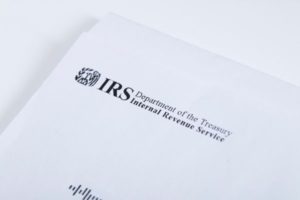If you have been contacted by the IRS requesting that you schedule an appointment to examine your compliance with the requirement to file FinCEN Report 114, Report of Foreign Bank and Financial Accounts (FBAR), an experienced legal and tax professional can help you satisfy all legal requirements and avoid any penalties for failure to comply with 31 U.S.C. § 5314.
Americans with money in foreign accounts must regularly report the details of these assets to the IRS or face serious consequences. Thus, taxpayers must meet their regular tax filing requirements and, if they have cash in financial accounts in foreign countries, must meet additional reporting requirements, such as filing an FBAR, as mandated by federal law.
April 17 is the deadline for filing a report of Foreign Bank and Financial Accounts with the Treasury’s Financial Crimes Enforcement Network. It is possible that the IRS may grant an extension until October 15. Individuals with foreign bank accounts must ensure they file FBARs contemporaneously with the filing of their federal income tax returns.
The federal government is taking a heavy-handed approach to Americans who violate the requirement to report foreign assets and file FBARs. The penalty for an intentional or willful failure to file an FBAR is significantly more than for any unintentional omission. Pursuant to 31 U.S.C. §5314, the FBAR willfulness penalty is the greater of $100,000 or 50% of the balance in the unreported foreign account at the time of the violation, and the maximum penalty for a nonwillful violation is $10,000.
Current case law may adversely affect any taxpayer asserting that the failure to comply was not willful. This is especially true as taxpayers have failed in several recent cases where courts upheld the maximum willfulness penalty and rejected a “reasonable cause” standard and, therefore, chose to forego the imposition of a lesser penalty or any assertion of the non-willfulness of the act. To prove a “willful” FBAR violation, the civil willfulness standard, which includes both knowing and reckless conduct, must be satisfied.
However, current case law suggests that any taxpayer asserting ignorance of the law, i.e., not knowing about the foreign bank account reporting obligation, may this to be the equivalent of a willful violation.
Taxpayers must act proactively and disclose their foreign bank accounts to avoid any future contact by the IRS. Alternatively, anyone with unfiled foreign bank account reports or unreported income from offshore accounts should consult with an experienced legal and tax professional for proper advice and assistance meeting all legal requirements related to foreign accounts, including the late filing of FBARs.

If you need assistance meeting FBAR requirements, call The Gartzman Law Firm at (770) 939-7710.

